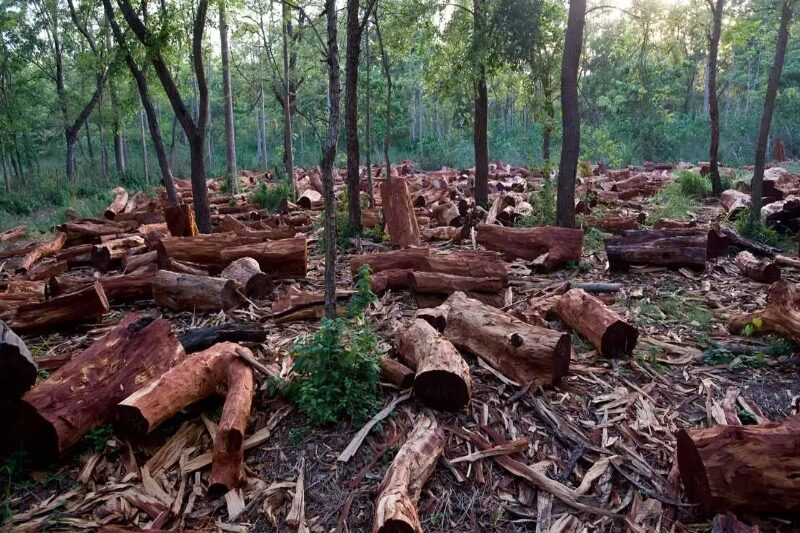Two charcoal makers have been found beheaded in a forest 15km from Damboa town in Borno State.
It is suspected the internally displaced persons were slain by members of the Jamā’at Ahl as-Sunnah lid-Da’way Wa’l-Jihād (JAS), more commonly known as Boko Haram.
The two farmers had gone to the forest on Tuesday, June 20, to cut down trees to make charcoal which was their only means of making a living.
Malam Kur Malam Mintari, a resident of Damboa town in the local government area of the same name, said that the slain charcoal makers were identified as Bunu and Goni. They were internally displaced persons (IDPs) who were living in a camp within the town.
“The vicious attack happened in broad daylight at about 12pm in the nearby forest about 15km from the town. The Boko Haram [JAS] insurgents tied up the innocent farmers before slaughtering them like animals by cutting off their heads. We had been searching for the men for a while when we found their corpses in the forest. We buried them there.”
Malam Mintari said one of the victims had been identified as Bunu, a displaced man originally from the village of Bale, also in the Damboa Local Government Area. He had a wife and two children, a little girl and a boy. He said they would need help to survive from the state and non-governmental organisations (NGOs).
Shettima Mamman, a security analyst and a senior lecturer in the criminology and security studies department of the Mohammed Goni College of Legal and Islamic Studies in Maiduguri, described the recent spate of attacks by insurgents on farmers and other innocent locals was a major setback in the quest for peace, security and stability.
“The reason the farmers are facing what can only be described as seriously gruesome attacks by insurgents, particularly now during the seasonal farming activities in the rainy season when they are out on their lands, is because the insurgents want to jeopardize and destabilise the relative peace and security that exists.
“The farmers are not in town so they are easy targets. The insurgents kill them to instil fear in other farmers and everyone else. It is evident that every year during the rainy season insurgents attack farmers by killing or wounding them. It’s as if they are sending a message to the state that the fight is ongoing, they are still out there and the attacks will carry on.”
If such deadly attacks on innocent locals and farmers continued, Mamman said, it would affect the agribusinesses, food production and food security of not only Borno State but also Nigeria as a whole.
He said it was imperative for the administration of President Bola Ahmed Tinubu to put in place strategic security measures to curtail the incessant attacks on farmers, especially in the rural areas.
He urged farmers and those living in rural areas to support the Nigerian Army and other security operatives by giving them their maximum cooperation and by complying with all laid-down security protocols and instructions, as well as sticking to the rules and regulations so that they would be safer and would have more security.
There had been a spate of attacks on farmers since the rainy season began earlier in June. Just last Thursday, on June 15, at least 15 farmers were killed by insurgents while working on their farmlands in Molai town, which is about 5km to 10km from Maiduguri, the capital city of Borno State.
In that gory attack, the farmers were also found beheaded. The insurgents used cutlasses and knives to behead them. Several of the farmers had also gone missing. Residents did not know if they were being held captive by the insurgents for ransom or if they were also dead.
A farmer in Molai said after the attack: “We are terrified. We are too scared to return to our farmlands. Unless proper security measures are put in place, we will continue to fear going back to our lands. We are praying to Almighty Allah to bring an end to the insecurity facing farmers and others in the community.”
SHETTIMA LAWAN MONGUNO








